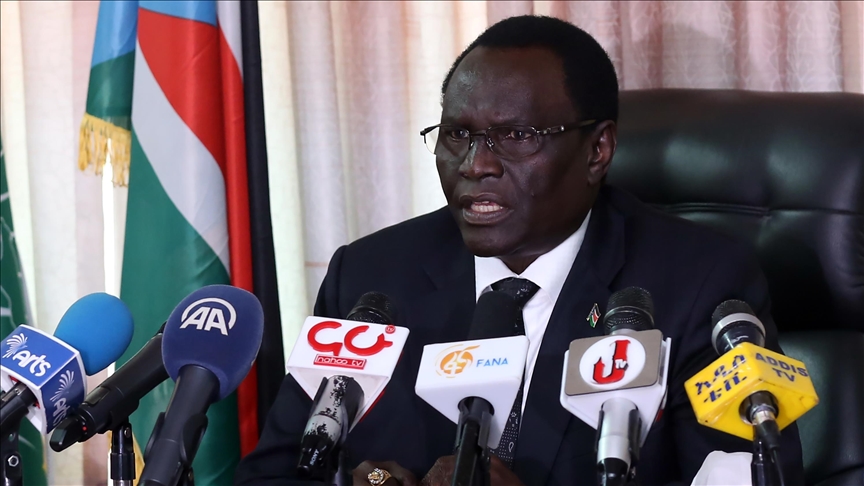ANKARA
One of the most important challenges that the least developed countries (LDC) face is sanctions from global powers, South Sudan’s foreign minister said Friday.
“Sanctions are used by the International Monetary Fund (IMF), the World Bank and the powerful countries to continue to pressure the least developed countries,” James Pitia Morgan said at a discussion at the Antalya Diplomacy Forum (ADF).
Stressing that sanctions cannot be used to help LDCs, Morgan said countries are suffering from many issues.
Morgan urged the removal of the so-called sanctions so that countries could have a chance at development.
Noting that they have the land and human power required for production, he said: “The only thing we do not have is capital because capital is controlled by some forces that we cannot approach.”
Guinea Bissau Foreign Minister Carlos Pinto Pereira said 33 of the 46 least developed countries in the world are in Africa.
Underlining that the implementation of the UN Sustainable Development Goals 2030 agenda may not be possible for those countries, Pereira said: “I am afraid that these countries will not be able to achieve the 2030 targets.”
“We need infrastructure in the fields of energy, transportation, and communication. These also require significant investments and are not visible yet,” he said.
Citing the “lack of motivation and wrong policies,” he said the reason for the situation was not only the coronavirus pandemic or the Russia-Ukraine War, but problems existed before those things happened.
Sylvie Baipo-Temon, the foreign minister of the Central African Republic, said it is difficult to achieve the UN’s 2030 goals and there is not enough funding.
“We have lived as a colonial country for a long time, and today we are still faced with a modern colony. This prevents us from setting our own economic goals,” he said.
Drawing attention to the mineral wealth of his country, he said his country is rich in terms of gold, lithium, and cobalt underground, spread over an area of 622 square kilometers (240 square miles).
“It is a dilemma for people living in a country with such great underground wealth to struggle with great poverty,” he said.
Sahba Sobhani, the director of the Istanbul International Center for Private Sector In Development, said technology is a significant element in the development of LDCs.
Sobhani said his organization initiated a project for students from underdeveloped countries to study data science with the support of Türkiye along with the UN Technology Bank.
Federica Irene Falomi, a member of the UN Technology Bank, also drew attention to the role of science, technology and innovation in structural transformation.
She said the Technology Bank works very closely with the governments of LDCs to develop a technology needs assessment.
In addition to providing aid financially, the transfer of expertise and skills is very important, she added.

